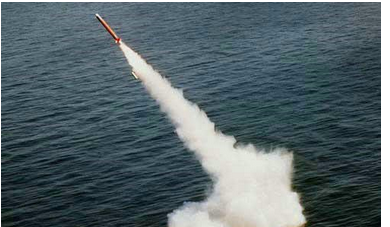(单词翻译:单击)
JUDY WOODRUFF: Now we return to the U.S. missile strikes on Syria and what the Trump administration's options for dealing with that now-six-year-old civil war.
Our chief foreign affairs correspondent, Margaret Warner, begins our coverage.
REX TILLERSON, U.S. Secretary of State: We rededicate ourselves to holding to account any and all who commit crimes against the innocents anywhere in the world.
MARGARET WARNER: Secretary of State Rex Tillerson made that vow today at a memorial ceremony for victims of a Nazi massacre. He spoke ahead of a G7 meeting in Italy. His message came just days after dozens of U.S. cruise missiles struck a Syrian air base in response to another massacre, a chemical attack that killed more than 80 people in rebel-held Idlib province.
Syria dominated today's summit, and all eyes were on Tillerson for clues as to what the U.S. plans to do next.
QUESTION: Mr. Foreign Minister, are you looking for clarification from the U.S. on its position on Assad?

MARGARET WARNER: Those questions came after Tillerson and U.N. Ambassador Nikki Haley appeared to send mixed messages yesterday about U.S. policy on Syria going forward, most notably on the future of Syrian President Bashar al- Assad.
Tillerson told CBS' Face the Nation that defeating the Islamic State, not removing Assad, remained the top priority.
REX TILLERSON: Once the ISIS threat has been reduced or eliminated, I think we can turn our attention directly to stabilizing the situation in Syria. We are hopeful that we can prevent a continuation of the civil war, and that we can bring the parties to the table to begin the process of political discussions. Clearly, that requires the participation of the regime, with the support of their allies.
MARGARET WARNER: But Haley seemed to suggest otherwise on CNN's "STATE OF THE UNION."
NIKKI HALEY, U.S. Ambassador to the United Nations: There's not any sort of option where a political solution is going to happen with Assad at the head of the regime. Well, regime change is something that we think is going to happen, because all of the parties are going to see that Assad is not the leader that needs to be taking place for Syria.
MARGARET WARNER: Today in Washington, White House Press Secretary Sean Spicer tried to square the two statements.
SEAN SPICER, White House Press Secretary: I can't imagine a stable and peaceful Syria where Bashar al-Assad is in power. And there can be a multipronged approach. We are ensuring that ISIS is contained and there is a de-escalation of the proliferation of chemical weapons at the same time creating the environment for a change in leadership.
MARGARET WARNER: Spicer also raised the possibility of U.S. military action against Assad for use of conventional weapons.
SEAN SPICER: If you gas a baby, if you put a barrel bomb into innocent people, I think you can — you will see a response from this president.
MARGARET WARNER: Tillerson, who has charged that Syria's principal backer, Russia, was either — quote — "complicit or simply incompetent" in Syria's use of chemical weapons, heads to Moscow for meetings Wednesday. He will meet with Foreign Minister Sergei Lavrov, but not, the Kremlin announced today, with President Vladimir Putin.
For the PBS NewsHour, I'm Margaret Warner.


